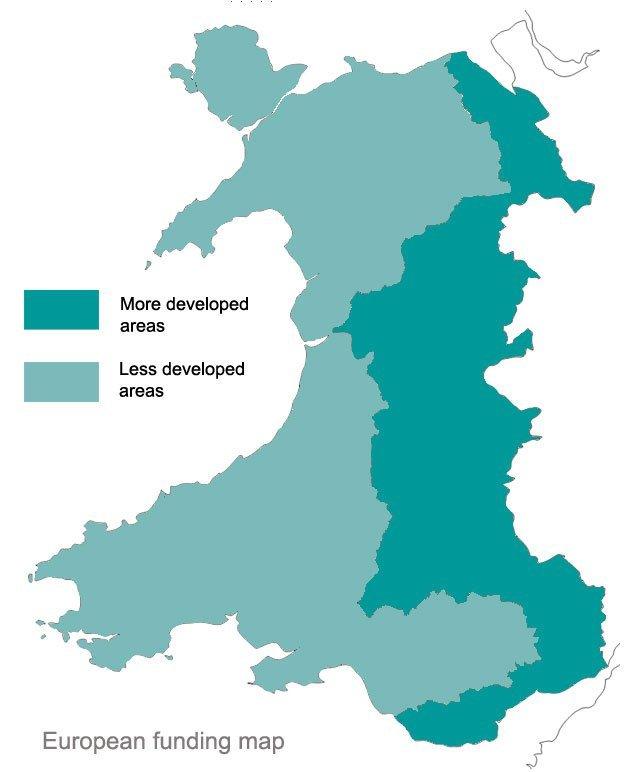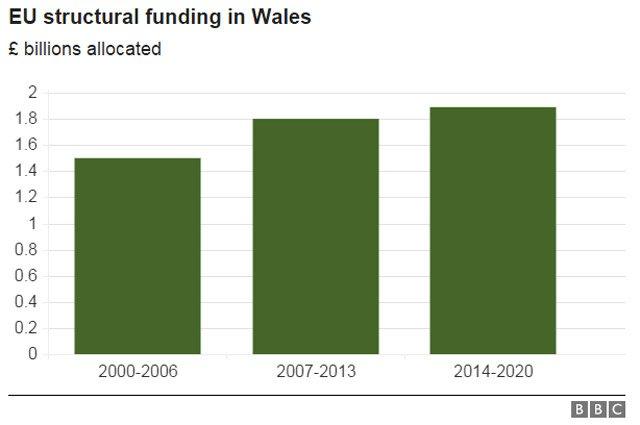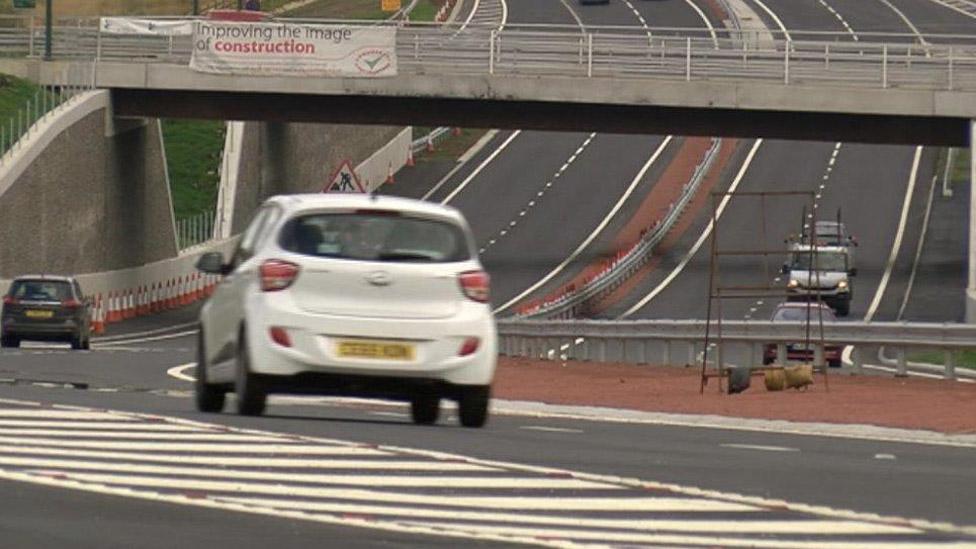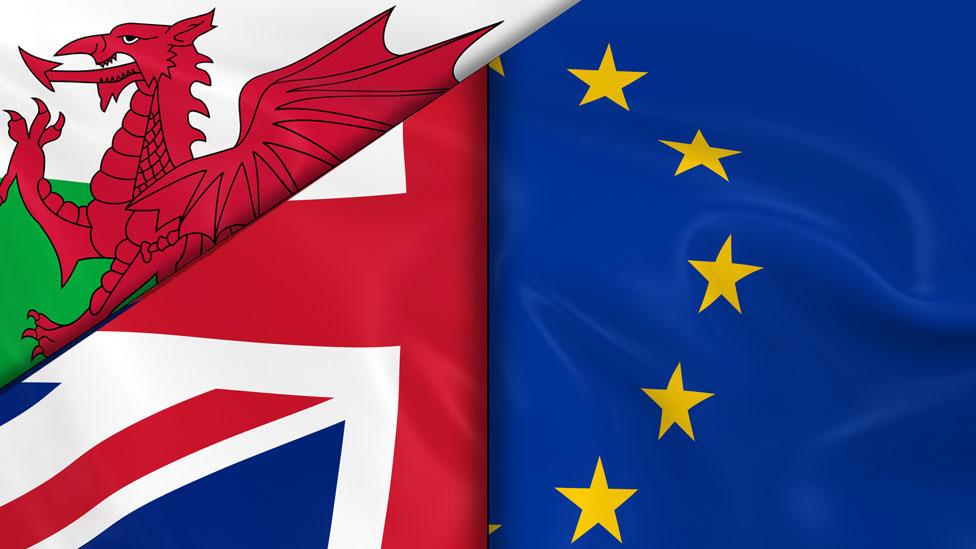Where does Brexit vote leave Welsh economy?
- Published

Areas in west Wales have qualified for the highest amount of EU support since 2000
It is clearly about more than money.
Wales gets the largest amount of money from the European Union and it also returned a vote to leave.
Wales' trade with EU member countries and investment from them is very significant but so too are funds from the EU itself.
Since 2000, Wales has been awarded the highest levels of economic support because we have consistently been one of the poorest parts of the EU despite new members states from Eastern Europe.
In one of Wales' poorest economic areas, Blaenau Gwent, 62% of people voted for Brexit
Wales has had £4bn in what is called structural funding from the EU since 2000 according the Welsh Government.
That had been set to continue until 2020. It is now unclear what will happen but the money is allocated in seven year tranches and so may continue.
The idea of the money is to help make the Welsh economy stronger and wealthier.

This shows how Wales is divided into two areas which qualify for different levels of EU structural funding
Wales is divided into two areas: West Wales and the Valleys which is made up of 15 local authorities and East Wales, seven.
West Wales and the Valleys has the highest level of what is called structural funding. It was in 2000 called Objective One . It is now called convergence funding. It is for countries in the EU with a GVA less that three quarters of the EU average GVA.
So how much of this money has Wales been allocated?
In the current round to 2020, it involves £1.89bn.

Structural funds have come to Wales in two pots: European Social Fund (ESF) and European Regional Development Fund (ERDF).
The money has been used to part-fund many initiatives across Wales, for instance the Jobs Growth Wales and also upgrading of the A465 Heads of the Valleys road.
With the UK voting to leave the EU, Wales will clearly no longer be eligible for those funds. Pro-Brexit campaigners have been adamant that similarly significant regeneration funds would flow to Wales from the UK Treasury should the UK leave.

EU money is helping fund the heads of the Valleys road improvements
Wales also stands out as having a higher proportion of inward investment (FDI) than the average across the UK.
Many of the 1,100 foreign-owned firms that are working in Wales now - employing 150,000 people - came here to be within the European Single Market. It meant they could trade within a massive market place without trade barriers.
Now, everything changes and we cannot know how that will impact existing foreign companies in Wales not those who we may have hoped to attract.
This morning the chief executive of Aston Martin, which is investing hundreds of millions in Wales and creating 750 jobs in St Athan, has said that Britain must seek a tariff-free European market.
Tata, which of course owns Port Talbot, Llanwern, Shotton, Trostre and Orb steel works, as well as Jaguar Land Rover, to which many Welsh firm supply, says access to markets and a skilled workforce would remain an important consideration for its businesses in Britain.
- Published9 June 2016
